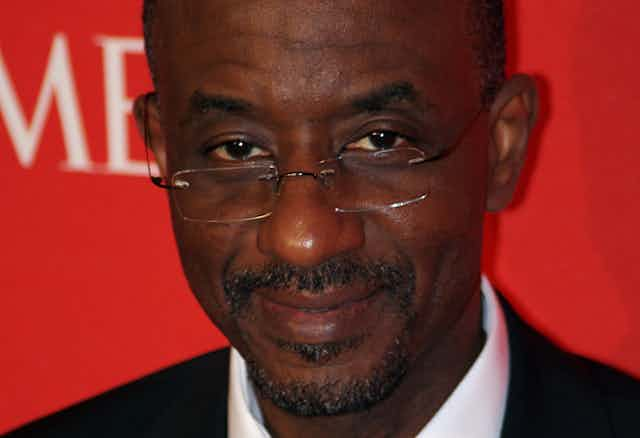The suspension of governor Lamido Sanusi from the helm of the Central Bank of Nigeria (CBN) is important, and not just for for analysts of future Nigerian monetary and exchange policies. Sanusi’s case also gives broader insight into the role of central banks in institutionally weak environments.
The suspension might come as a surprise given the governor’s term was about to come to an end in a few months. But it comes in the wake of claims Sanusi made that billions of dollars were missing from the state oil company – claims rejected by the company and government officials – and raises the suspicion that a messenger is being shot.
I have met Sanusi on several occasions and heard him express his views both in public and private settings. He came to office shortly before the Nigerian bubble burst (which in turn was a result of a consolidation process in Nigerian banking). He did what many European regulators have been too afraid to do over the past five years: he addressed the problems head-on, removed banks’ CEOs, sent several banks into liquidation or restructuring and tightened both regulation and supervision.
The former governor was not perfect – the asset management company he put in charge of cleaning up banks went beyond its mandate, taking stakes in troubled companies that banks had lent to, and undertaking industrial policy. It’s also fair to say that, in general, transparency about restructuring was low. But these reforms were for the better and resulted in a stronger Nigerian banking system, ultimately to the benefit of the Nigerian economy.
Reaching beyond his remit?
Sanusi has strong opinions far beyond monetary and financial policy, and this looks likely to have been at the root of his removal. His decision to point to billions of dollars of missing oil revenue might be seen as going beyond his most immediate brief of financial and monetary stability. But natural resource flows are obviously of concern for macroeconomic management and leakages are a problem for the trade-off of exchange rate management and domestic interest rates.
But the natural resource curse – upward pressure on the exchange rate that reduces the economy’s competitiveness in non-resource sectors – goes far beyond the immediate macroeconomic area towards undermining institutions and fostering corruption. And it is here that central bank independence meets that curse head on. By pointing to graft and theft in the natural resource sector, he might have overstepped a political line. Do it as an election campaign just starts to ramp up and it becomes a mighty big step.
In many developing countries, especially in Sub-Saharan Africa, central banks are often seen as the only institutions that combine relative political independence with high capacity and skill base. This has often led to central banks being given responsibilities beyond monetary and financial stability, as is typical in most developed countries.
Financial inclusion, which broadens access to formal financial services beyond the wealthy and connected, has become an important objective for many central banks. Broader governance issues, for example with respect to the management of an economy’s natural wealth, almost naturally also end up on central bank’s plate. A seminar on the management of natural resource wealth in Africa, organized by the IMF in Algiers a few years ago saw both central bank governors and ministry of finance officials attend and, not surprisingly, often express opposite views.
The change at the helm of CBN is not only of importance for Nigeria, but has repercussions for the rest of the continent given the increasing importance of Nigerian banks. The main operations of some of Africa’s leading new banks, including Ecobank, which recently made headlines with its own governance problems, are located in Nigeria. At times of increasing cross-border links across the continent, strong and positive leadership from one of Africa’s major host countries more necessary than ever.

